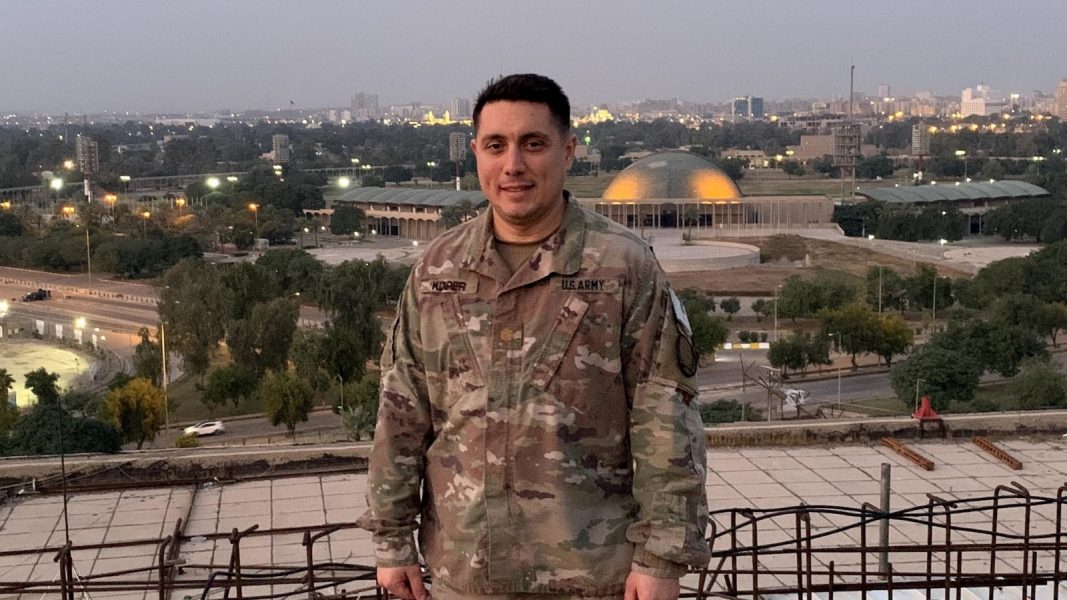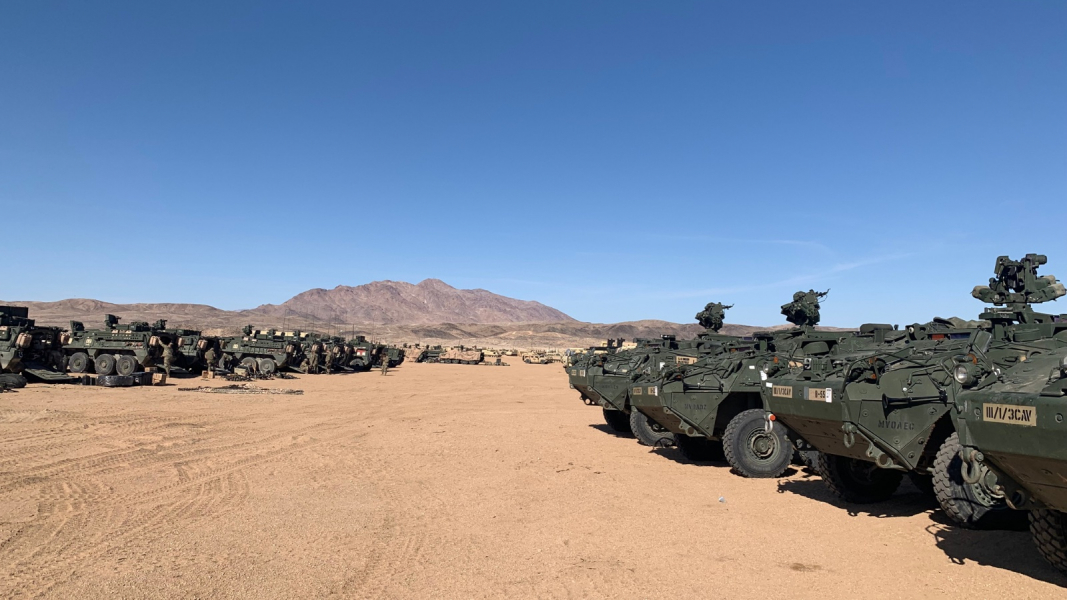Army Officer/Duke Engineer Aiming to Strengthen Fleet Maintenance with AI
Maj. Patrick Kuiper, a Duke ECE doctoral student, is leveraging sensor data to improve the US Army's vehicle fleet

Before US Army Maj. Patrick Kuiper started his PhD at Duke, he served as the executive officer, or “XO,” of an infantry battalion. An XO is second-in-command of a unit and handles all its administration. One of Kuiper’s many responsibilities in this role was making sure that the vehicles transporting soldiers and critical equipment were kept serviceable and reliable.
From a practical and tactical perspective, Kuiper understands vehicle maintenance schedules well. But in the lab of Vahid Tarokh, the Rhodes Family Distinguished Professor of Electrical and Computer Engineering at Duke, Kuiper is applying a different skill set to get deeper insights: math.
Tarokh and Kuiper met at Harvard, through their involvement with Draper Labs, a US Department of Defense research organization. Kuiper was a Draper Fellow who Tarokh mentored through his master’s program research project on optimizing the quality of life for soldiers in temporary camps.
“When you deploy, it’s not always to an established post, like the bases in Germany or Korea. In Afghanistan and Iraq, for example, there are temporary camps where resources like water are scarce,” explained Kuiper, who has deployed to both. “We have survey data about what things are important to soldiers in these environments—like hot showers—and we can adjust how we consume resources elsewhere to provide a better living environment for them.”
Kuiper finished his master’s degree and joined the math department at the US Military Academy at West Point as an assistant professor. When he completed his service as XO, he was invited to earn a PhD at Duke and return to teach at West Point, while remaining on active duty with the Army.

Tarokh, who joined the Duke ECE faculty in 2018, was eager to bring Kuiper into the Duke fold, and Kuiper was eager to join.
“My master’s thesis was applied research,” said Kuiper. “Now I’d like to expand my ability to incorporate mathematical analysis—that’s where I want to step up my game. One thing that I like about Vahid’s lab is that every project has a theoretical foundation.”
Tarokh’s lab focuses on the fundamental attributes of algorithms that process the huge amounts of data needed to make machine learning possible. Kuiper’s first project in Tarokh’s lab examines one of those large data sets, which is composed of hundreds of thousands of measurements taken by sensors inside of the engines of military vehicles.
It’s an understatement to say that the U.S. military has a lot of vehicles, and they are used to varying degrees. Some are taken out regularly on well-maintained roads. Others are driven hard in the field and then parked for weeks on end. Sometimes a vehicle benefits from infrequent use, while other times its tires and hoses dry rot if it’s idle. But there are so many vehicles to keep track of that servicing them is based on their mileage and an annual schedule rather than individual instances of wear and tear.
“When you put all the different kinds of engine readings together—oil pressure, tire pressure—it becomes a difficult statistical quantity to work with. There are techniques to getting to that single outcome, but those techniques are not well understood. That uncertainty is where we’re focusing.”
Kuiper said that using sensor data to tailor maintenance will build readiness, save the military money and conserve mechanics’ limited time.
“The idea is to get into that loop and be informed in real–time on the vehicle’s health,” he said. “But when you put all the different kinds of engine readings together—oil pressure, tire pressure— it becomes a difficult statistical quantity to work with. There are techniques for getting to that single outcome, but those techniques are not well understood. That uncertainty is where we’re focusing.”
For critical pieces of equipment, Kuiper said, predictive maintenance is likely to play a role in the future.
“For many decades, the Department of Defense has been at the forefront of technological developments like the internet, satellite communications, machine learning, brain-computer interfaces, prosthetics and more. These technologies have improved the human condition significantly and revolutionized the world we live in,” said Tarokh. “Patrick’s PhD research, which aims to predict when the components of planes, trains and automobiles are likely to wear out, will contribute to this research legacy. I’m thankful that the Department of Defense and West Point have given me the pleasure of working with him and supporting his research.”
Duke’s AFRL/AFOSR University Center of Excellence

Robert Calderbank (left) and Vahid Tarokh—elected members of the prestigious National Academy of Engineering—lead Duke’s $5 million US Air Force Research Laboratory/Air Force Office of Scientific Research University Center of Excellence: Agile Waveform Design for Communication Networks in Contested Environments.
The center focuses on developing communication protocols for handling the most data-heavy tasks imaginable—such as flying unmanned autonomous vehicles.
